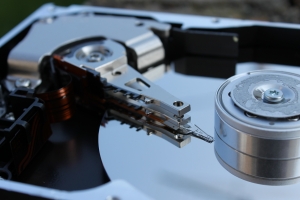

Our criticism of UEFI Restricted Boot is not just to do with GNU/Linux and BSD. It's to do with a troubling trend where hardware gets closely tied to software. It's an artificial limitation which is dangerous and costly. Tech tabloid ZDNet has this post which says "ARM now recommends UEFI as the preferred boot loader for its 64-bit processors that are based on the ARMv8 AArch64 architecture, silicon that is finding its way into all sorts of devices, from smartphones to servers and introduced a new raft of features, including a larger register file, enhanced addressing range and support for cryptography instructions."
"With FAT preinstalled, Microsoft comes knocking to demand payments, even if support for FAT is implemented by Linux."This is not good. And not just because of Microsoft. On devices there is no option for disabling Restricted Boot. Microsoft can exploit that for unfair advantage, or an antitrust violation. Moreover, says Claudio in D*, "First it was Winmodems, and now it's Windrives? WTF?!? This is 2013, guys."
To quote the article he references: "PC makers using the Black SSHD will be able to choose between WD's proprietary driver and one provided by Intel. The drivers behave similarly, according to Rutledge, but they're not identical. The WD driver was developed in-house and works with both Windows 7 and 8. In an interesting twist, that driver also employs system memory as part of the caching scheme. We'll probably have to wait until the Haswell launch next month to find out exactly what Intel is bringing to the table." (source)
As TomTom found out, there is another problem with storage devices. With FAT preinstalled, Microsoft comes knocking to demand payments, even if support for FAT is implemented by Linux. There is also preinstalled NTFS on Seagate, which makes it no better than Western Digital with built-in DRM (all magnetic drives seem to be Microsoft-infected). These are issues we need to protest against. It's the beginning of the slippery slope. Hardware, unlike software. cannot be re-imaged (like replacing Windows with GNU/Linux). ⬆